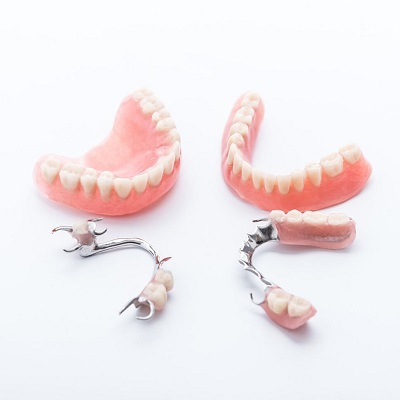Wearing dentures can greatly enhance your quality of life, allowing you to eat, speak, and smile with confidence. However, many individuals experience common issues and discomfort when adjusting to Teeth Dentures Clinic Dubai. Understanding how to prevent and manage these problems is crucial for a smooth transition. Here are some tips to help you avoid common denture-related issues and discomfort.
1. Proper Fitting:
Importance of a Good Fit:
Custom Fit: Ensure your dentures are custom-made by a qualified dental professional. Ill-fitting dentures can lead to discomfort, sores, and difficulties with eating and speaking.
Regular Check-ups: Schedule regular visits to your dentist for adjustments. Over time, the shape of your gums may change, requiring your dentures to be refitted or relined.
Signs of Poor Fit:
Persistent soreness or irritation
Difficulty speaking or chewing
Slipping or movement of dentures
2. Hygiene Practices:
Daily Cleaning Routine:
Brush Your Dentures: Clean your dentures daily using a soft-bristle brush specifically designed for denture care. Avoid regular toothpaste, as it can be abrasive.
Soaking Solutions: Use denture cleaning solutions to soak your dentures overnight, which helps remove plaque and stains.
Oral Care:
Brush Your Gums: Clean your gums, tongue, and the roof of your mouth daily with a soft toothbrush to promote oral health and stimulate circulation.
3. Diet Considerations:
Foods to Avoid:
Hard Foods: Steer clear of hard or crunchy foods, especially during the initial adjustment period, as they can dislodge or damage dentures.
Sticky Foods: Avoid sticky candies and gum that can adhere to your dentures and cause discomfort or breakage.
Gradual Introduction:
Start with soft foods, gradually introducing more variety as you become accustomed to your dentures. Foods like mashed potatoes, yogurt, and smoothies can ease the transition.
4. Managing Discomfort:
Over-the-Counter Solutions:
Oral Gels and Pastes: If you experience sore spots, consider using oral gels or pastes designed to soothe irritation.
Pain Relief: Over-the-counter pain relievers can help manage discomfort during the adjustment phase.
Denture Adhesives:
Proper Use: If you use denture adhesive, apply it sparingly. Too much adhesive can cause discomfort, while too little can lead to slipping.
Choose the Right Product: Look for hypoallergenic adhesives if you have sensitive gums.
5. Gradual Adjustment:
Allow Time for Adaptation:
Speech and Eating Practice: Take your time to practice speaking and eating with your new dentures. Start with small bites and speak slowly to build confidence.
Regular Wear: Wear your dentures as recommended by your dentist to help your mouth adapt to them.
Stay Patient
6. Addressing Concerns Promptly:
Communication with Your Dentist:
Don’t hesitate to reach out to your dentist if you experience persistent discomfort, sores, or any other issues. Prompt adjustments can prevent further complications.
Regular check-ups can also identify potential problems before they escalate.
Joining Support Groups:
Consider joining support groups or forums where you can share experiences and tips with others who wear dentures. This can provide emotional support and practical advice.
Conclusion:
Avoiding common denture problems and discomfort involves a combination of proper fitting, diligent hygiene, dietary adjustments, and effective management strategies. By taking proactive steps and maintaining open communication with your dental professional, you can enjoy the benefits of dentures without the accompanying discomfort. Remember, the goal is to enhance your quality of life, and with the right care and mindset, you can achieve that.





Comments